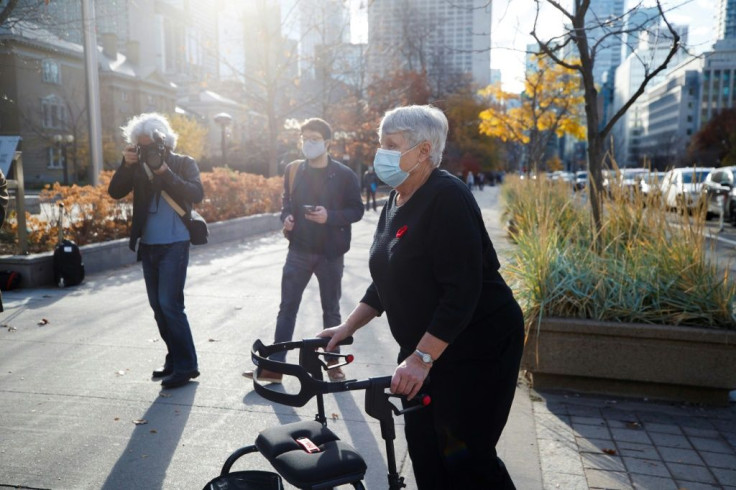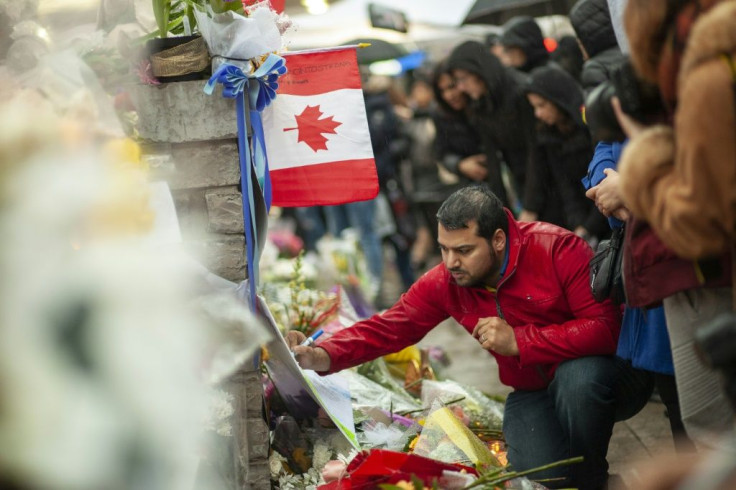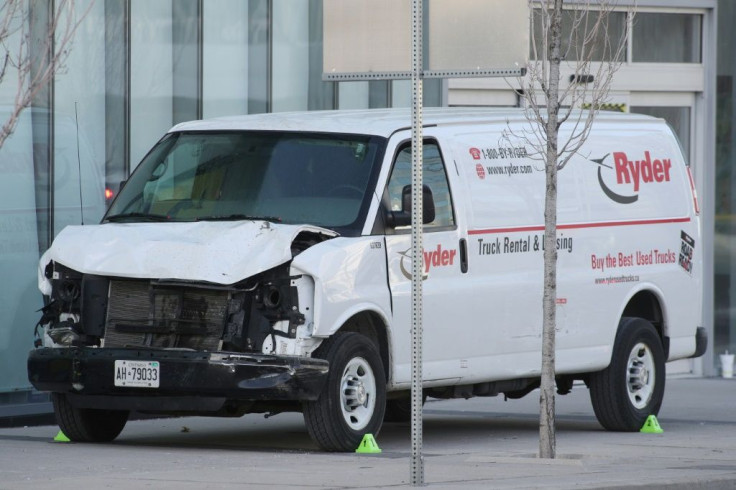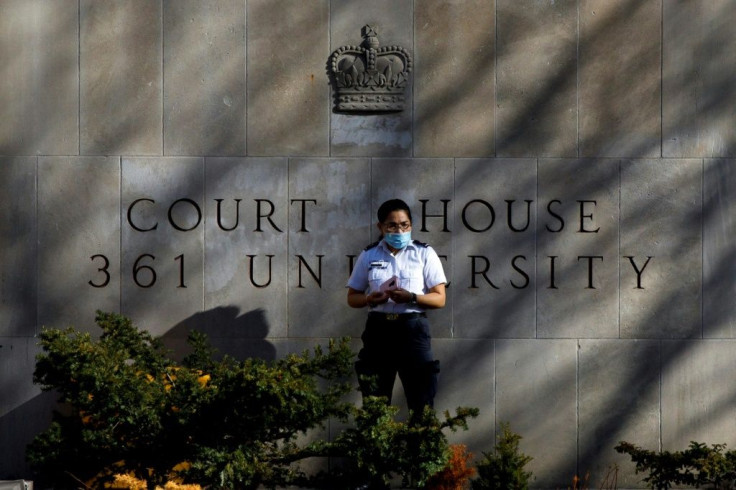Man Accused In Toronto 'Incel' Van Attack Pleads Not Criminally Responsible
A Canadian man inspired by the misogynist "incel" movement to kill 10 people by ploughing a van into pedestrians in Toronto pleaded "not criminally responsible" due to mental illness at the start of his trial Tuesday.
Alek Minassian faces 10 charges of premeditated murder and 16 of attempted murder following the April 2018 attack that left dead eight women and two men, aged 22 to 94 years old, and others badly injured in Canada's largest city.
"I'm entering a plea of not criminally responsible on all counts," he told the Ontario Superior Court.

The 28-year-old, wearing a shirt and suit jacket, appeared via videolink from prison where he has been held since his arrest on the day of the rampage.
The trial is being held by videoconference because of Covid-19 restrictions.
Cathy Riddell, 67, who was struck from behind in the attack and thrown 15 feet (4.5 meters), earlier told reporters she was "feeling nervous but optimistic" as she entered the courthouse for the trial.
She has said she didn't hear the van coming as it mounted a curb, nor does she remember being struck.

Victims' families lamented that Minassian would not see them on the videolink, unlike in traditional trials in which they may face the accused.
"I want him to see the pain in their faces as they sit there in the courtroom watching him," Elwood Delaney, whose grandmother died in the attack, told public broadcaster CBC.
But, he added, "We don't get to see him go through that."
The trial is expected to last about four weeks and will be heard by a judge, with no jury.

Since he has already admitted to planning and carrying out the carnage, the trial will focus on Minassian's state of mind and criminal responsibility at the time of the attack, not whether he was the perpetrator.
His mother says he suffers from Asperger's syndrome, a mild form of autism that includes impaired social interactions or communication.
Psychiatrists will testify at the trial.

The attack took place on a sunny spring afternoon in the North York neighborhood of Toronto when crowds strolled along busy city streets.
The accused drove a white rented van at high speeds along two kilometres (1.2 miles) of roads and sidewalks, indiscriminately targeting passers-by one by one.
"There was no warning when Minassian mounted the sidewalk," said prosecutor Joe Callaghan, reading a statement of facts based on witness accounts and video evidence.
"Pedestrians on the sidewalk were panicking and running for their lives," he said.
Leaning forward and looking straight ahead, gripping the steering wheel with both hands, Minassian struck and sent several pedestrians flying into the air and dragged others along the pavement.
"He accelerated over top of the victims, never slowed... and did not brake when he hit the pedestrians," Callaghan said.
Minassian was found immediately following the attack standing by the van with its front end mangled and behaving erratically, video footage aired at the time showed.
He'd stopped his rampage, he told police, only after his windshield was obscured by a splashed drink. "I wanted to do more but was foiled by a lack of visibility," he said.
During a four-hour interrogation, he described the anger he felt toward women and said this had motivated the attack.
He said he had joined an online community of like-minded men who described themselves as "incels" or "involuntary celibates," whose sexual frustrations led them to embrace a misogynist ideology.
"I'm sometimes a bit upset that (women) choose to date obnoxious guys instead of gentlemen... like myself," he said, recalling women who "laughed at me" and spurned his advances at a 2013 Halloween party.
He said the "forced loneliness" is "especially painful for young males."
Just prior to the attack, he posted on Facebook from his phone: "The incel rebellion has already begun," and referenced American mass killer Elliot Rodger who committed a similar attack in California.
While it is a "transnational movement," the incel subculture is mainly based in North America, according to an analyst at Moonshot, a British organisation that works to combat violent extremism online.
Most linked to the movement are teenagers or in their twenties and report suffering from mental illnesses, the researcher, who asked not to be named for security reasons, told AFP.
© Copyright AFP {{Year}}. All rights reserved.




















